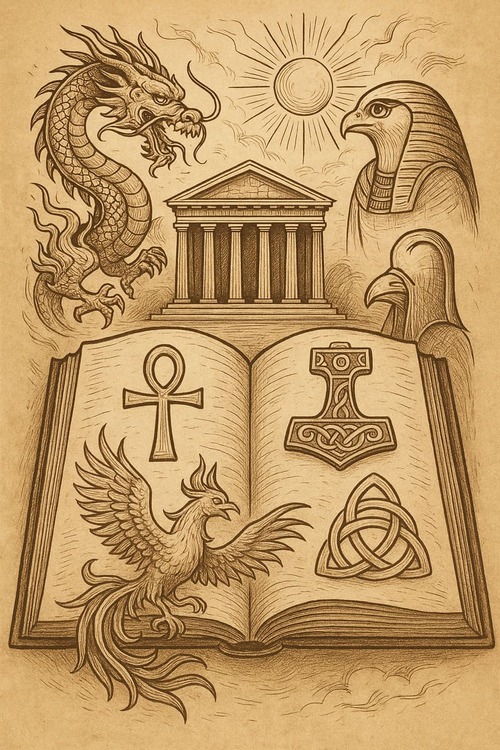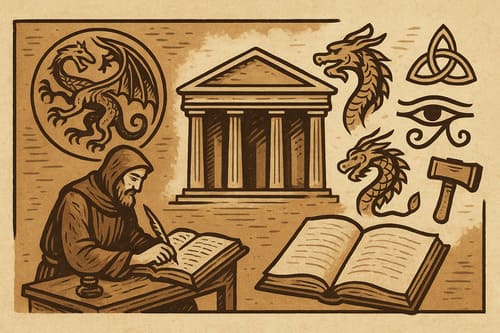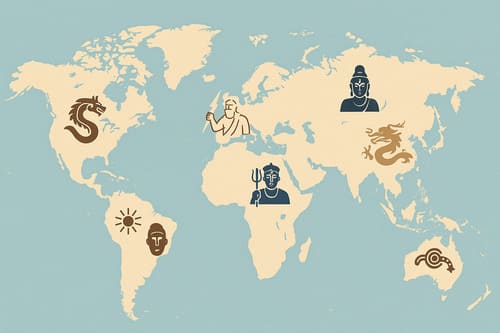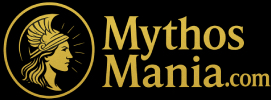What is mythology? Definition, history and examples
Mythology is the collection of myths, tales, and symbolic narratives that explain the origin of the world, gods, human beings, and natural phenomena. These stories, often considered sacred, have been part of all cultures on the planet and have been transmitted orally, and later in writing, throughout generations.
Etymology: from Greek mythos (story, word) and logía (study).
From Late Latin mythologĭa, and this from Ancient Greek μυθολογία (mythología).
According to the Oxford English Dictionary, mythology is a collection of myths, especially one belonging to a particular religious or cultural tradition.
The term mythology also refers to the academic discipline that studies these myths, their origins, evolution, and cultural impact.

Representation of the concept of mythology in different cultures.What is mythology used for?
Throughout history, myths have served to:
- Explain the origin of the universe and humanity.
- Understand natural phenomena, such as the sun, rain, or seasons.
- Transmit values, teachings, and social norms.
- Create a bond between humans and the divine or supernatural.
- Establish the cultural identity of peoples and civilizations.
Although many mythologies are no longer practiced as living religions, their stories remain present in literature, art, film, and symbolic thinking.
History of mythology as a cultural phenomenon
Since prehistoric times, humans have created stories to explain the unknown. Myths emerged as oral narratives in tribal communities and were consolidated as symbolic systems when civilizations began to structure themselves socially and religiously.
In Antiquity, cultures such as Egyptian, Greek, Mesopotamian, or Chinese developed complex pantheons and organized mythologies. With the advent of writing, these myths passed from oral tradition to sacred texts, epic poems, or hymns.

Evolution of mythology from oral tradition to academic study.For centuries, mythology was inseparable from religion and politics. In the Middle Ages, many mythologies were suppressed or reinterpreted by monotheistic religions. Later, during the Renaissance and Romanticism, interest in myths resurfaced, especially as objects of study, art, and literature.
Today, mythology is studied through disciplines such as anthropology, psychology, philosophy, philology, and comparative history of religions.
Types of myths
Myths can be classified according to their function or theme:
- Cosmogonic: explain the creation of the world.
- Theogonic: relate the origin of the gods.
- Anthropogonic: narrate the origin of human beings.
- Eschatological: describe the end of the world or apocalypse.
- Etiological: explain the origin of elements of culture (such as fire or language).
- Heroic: tell the feats of gods, heroes, or demigods.
Mythology, religion, legend, and folktale: how do they differ?
Although they are related, mythology and religion are not the same. Religion includes worship practices and current faith; mythology collects traditional stories that may or may not have active religious value.
It is also not the same as a legend (based on some historical fact) nor as a folktale (more fantastic and focused on entertainment).
Examples of important mythologies
Almost all civilizations have developed their own mythology. Some notable examples are:
- Greek mythology – Olympian gods, titans, heroes like Hercules.
- Egyptian mythology – Ra, Isis, Osiris, the judgment of the soul.
- Norse mythology – Odin, Thor, Loki, and Ragnarök.
- Japanese mythology – Amaterasu, the kami, the myth of Izanagi and Izanami.
- Hindu mythology – Vishnu, Shiva, Brahma, and the eternal cycle.
- Maya mythology – Popol Vuh, gods of corn and the underworld.
- African mythology – Orishas like Yemayá, Shango, and ancestral myths.

Would you like to discover all mythologies?
Explore the complete index of world mythologies →
Current importance of mythology
Today, myths continue to live in new forms:
- In literature and film (Marvel, Percy Jackson, Japanese anime).
- In the symbols and metaphors of our everyday language.
- In psychoanalysis and philosophy (Carl Jung, Joseph Campbell).
- In video games, comics, and series.
Understanding mythology is also understanding how humans think, how they make sense of the world, and how they create stories to live in it.
Continue exploring the world of mythology
Discover the most representative gods of each mythology, understand their role in traditional stories, and explore the myths that marked each civilization.
See all world mythologies →
Discover what a myth is →
Explore types of myths →
